About Huntington Creek Recovery Center
Their detox services are designed to keep you comfortable and stable as you adjust to living without substances. The experienced and knowledgeable team carefully monitors your condition, adjusting medication levels and determining when you’re ready to begin treatment.
The residential program is structured without feeling restrictive. Each day starts with a healthy breakfast and a guided stretch or meditation session. You’ll then attend a group therapy session, enjoy some free time, and eat lunch. Afterward, you’ll move into experiential therapy sessions and structured recreation time.
This is followed by a hearty dinner, one final group therapy session and self-help meetings. Every day ends with a quick debriefing session where all residents talk about the day’s activities and celebrate their growth.
Something unique about Huntington Creek Recovery Center is the fact that the program focuses majorly on experiential therapies. Experiential therapy involves using immersive activities to work through difficult emotions and experiences.
Some of the activities you can partake in include team building activities, aerobic fitness classes and a challenging but fun ropes course. They also offer a wilderness program, nature walks, hiking trips, campfire outings and other outdoor adventure trips that teach you about resilience while letting you connect with nature. You can also get involved with more mindful activities like yoga, guided meditation, and music therapy.
They incorporate evidence based practices as a foundation for the experiential methods. These include cognitive behavioral therapy (CBT) and dialectical behavioral therapy (DBT), eye movement desensitization and reprocessing (EMDR), the 12-step program and motivational interviewing. You’ll attend individual and group therapy sessions several times a week to learn coping mechanisms and work through issues that contribute to substance use.
Latest Reviews
Rehab Score
Gallery
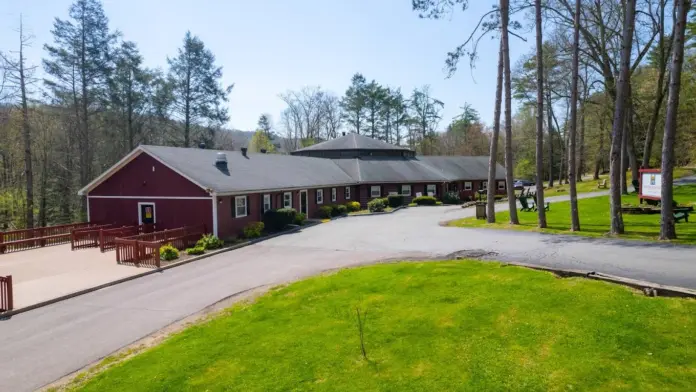
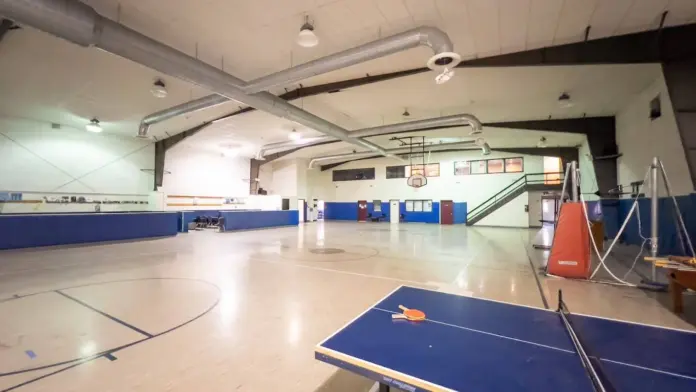
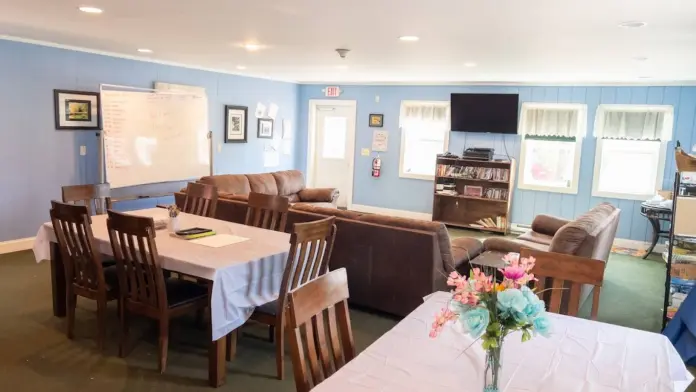
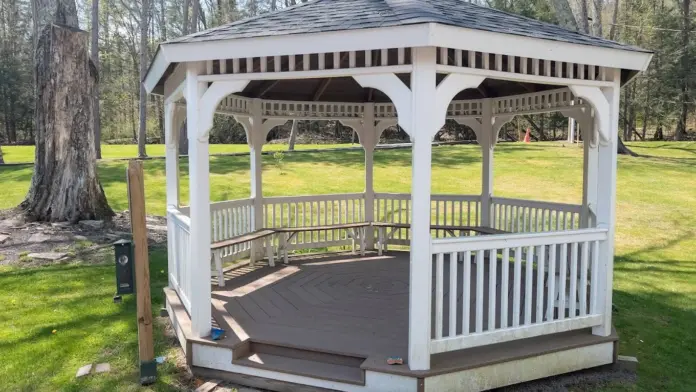
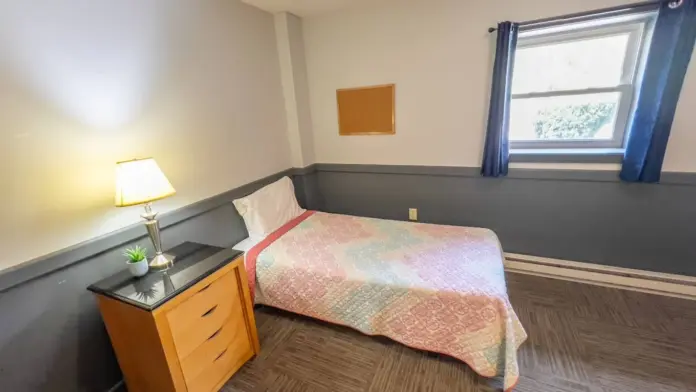
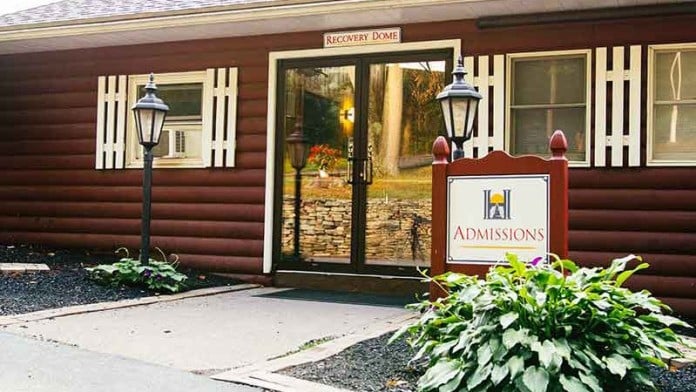
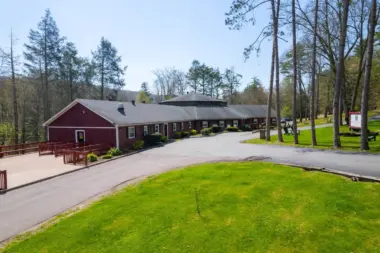
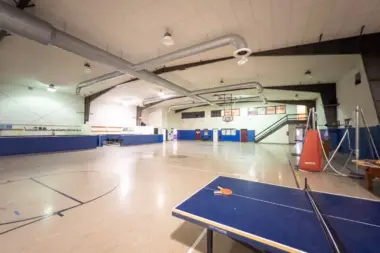
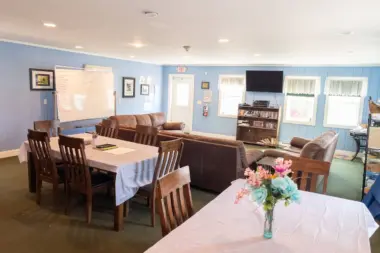
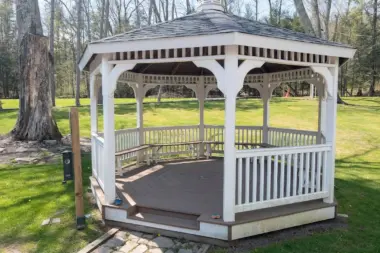

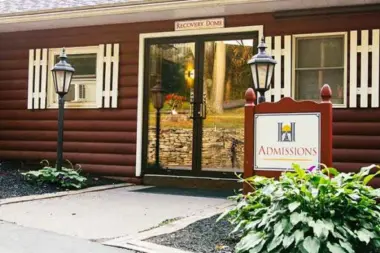
Accepted Insurance
Other Forms of Payment
Self-pay involves paying for treatment out of your own pocket. You can use savings or credit, get a personal loan, or receive help from family and friends to fund your treatment. If you don't have insurance or your insurance plan doesn't cover a specific program, self-pay can help ensure you still get the care you need.
Private insurance refers to any kind of healthcare coverage that isn't from the state or federal government. This includes individual and family plans offered by an employer or purchased from the Insurance Marketplace. Every plan will have different requirements and out of pocket costs so be sure to get the full details before you start treatment.
Medicare is a federal program that provides health insurance for those 65 and older. It also serves people under 65 with chronic and disabling health challenges. To use Medicare for addiction treatment you need to find a program that accepts Medicare and is in network with your plan. Out of pocket costs and preauthorization requirements vary, so always check with your provider.
Private insurance refers to any kind of healthcare coverage that isn't from the state or federal government. This includes individual and family plans offered by an employer or purchased from the Insurance Marketplace. Every plan will have different requirements and out of pocket costs so be sure to get the full details before you start treatment.
Medicaid is a state based program that helps lower-income individuals and families pay for healthcare. Medicaid covers addiction treatment so those enrolled can use their coverage to pay for rehab. When a program accepts Medicaid the client often pays very little or nothing out of their own pocket.
Addiction Treatments
Levels of Care
When individuals come to Huntington Creek Recovery Center with substances of abuse actively in their systems, they will typically need to begin the treatment process by first participating in detoxification services. Also known as detox, this process allows individuals to have drugs or alcohol effectively removed from their bodies while remaining as comfortable as possible. The detox staff at Huntington Creek Recovery Center consists of a medical director, a physician’s assistant, registered nurses, and licensed practical nurses, who all work to ensure the safety of each patient. While receiving care in the detox unit, patients will also be afforded full access to the clinical treatment program.
Residential treatment at Huntington Creek Recovery Center in Pennsylvania is an intensive, holistic experience during which men and women receive personalized services that are best suited to helping them achieve long-term recovery from chemical dependency and certain co-occurring mental health disorders. Each person who chooses to heal at Huntington Creek Recovery Center, the Northeast’s premier, exclusive, addiction rehab center, will have a unique residential rehab experience.
Clients receiving services from a rehab aftercare program are usually stable and in the maintenance phase of recovery, having completed detox and/or intensive inpatient treatment. Rehab aftercare services can vary widely based on clients' individual and evolving needs, but often include peer coaching, relapse prevention support, 12 step program induction, and medical, mental health, and social service referrals. Individual care plans are typically developed by the client in partnership with their case manager and care team.
Intervention services bring extensive experience to the planning and conducting of drug interventions in Pennsylvania. These experts can facilitate interventions in a sensitive manner that encourages positive outcomes. The goal of the intervention is to educate the individual about addiction and the consequences of their substance use and encourage them to get the treatment they need. Interventions can be effective with all types of drugs and alcohol addiction.
Treatments
Many of those suffering from addiction also suffer from mental or emotional illnesses like schizophrenia, bipolar disorder, depression, or anxiety disorders. Rehab and other substance abuse facilities treating those with a dual diagnosis or co-occurring disorder administer psychiatric treatment to address the person's mental health issue in addition to drug and alcohol rehabilitation.
Substance rehabs focus on helping individuals recover from substance abuse, including alcohol and drug addiction (both illegal and prescription drugs). They often include the opportunity to engage in both individual as well as group therapy.
Alcoholism is a syndrome of dependent alcohol use. Also called alcohol use disorder (AUD), the symptoms include craving alcohol, not being able to stop drinking, and feeling anxious or irritable when not drinking. For many people, alcohol rehab in Pennsylvania is a beneficial treatment. Programs offer many levels of care, including medical and behavioral therapies.
Drug rehab in Pennsylvania is devoted to the treatment of addiction. Levels of care, treatment methods, and settings differ, but the aim of each program is to end drug dependency and empower participants to achieve long-term recovery.
Programs
Adult rehab programs include therapies tailored to each client's specific needs, goals, and recovery progress. They are tailored to the specific challenges adult clients may face, including family and work pressures and commitments. From inpatient and residential treatment to various levels of outpatient services, there are many options available. Some facilities also help adults work through co-occurring conditions, like anxiety, that can accompany addiction.
Young adulthood can be an exciting, yet difficult, time of transition. Individuals in their late teens to mid-20s face unique stressors related to school, jobs, families, and social circles, which can lead to a rise in substance use. Rehab centers with dedicated young adult programs will include activities and amenities that cater to this age group, with an emphasis on specialized counseling, peer socialization, and ongoing aftercare.
Teen programs are designed to address the unique pressures teens face, pressures that can drive them to experiment with dangerous, addictive substances. They need programs that meet them exactly where they are and give them tools for long-term recovery. Therapy can help teenagers understand and work through underlying issues so they can reclaim the life ahead of them.
Clinical Services
Cognitive Behavioral Therapy (CBT) is a therapy modality that focuses on the relationship between one's thoughts, feelings, and behaviors. It is used to establish and allow for healthy responses to thoughts and feelings (instead of unhealthy responses, like using drugs or alcohol). CBT has been proven effective for recovering addicts of all kinds, and is used to strengthen a patient's own self-awareness and ability to self-regulate. CBT allows individuals to monitor their own emotional state, become more adept at communicating with others, and manage stress without needing to engage in substance abuse.
In order to offer patients the opportunity to receive a holistic approach to care, Huntington Creek Recovery Center implements a number of experiential therapies into the overall course of programming when individuals are working to overcome an addiction to drugs and/or alcohol. Each Monday, a certified recreational therapist comes to their center to facilitate a variety of special projects with their patients. Men and women who partake in this method of care can benefit from making art projects, participating in a music group that features instruments and sing-a-longs, and learning beneficial recovery-orientated skills that will help them along their journeys to sobriety.
Without addressing a patient’s trauma history, it can be difficult to effectively treat his or her substance abuse disorder. Therefore, the clinical program at Huntington Creek Recovery Center includes a variety of treatment techniques designed to help patients heal from past traumas. As part of their individualized treatment plans, patients have access to Eye Movement Desensitization and Reprocessing (EMDR) therapy. Originally designed to help individuals who were suffering from post-traumatic stress disorder (PTSD), EMDR is a multiphase treatment designed to help patients reprocess their experience of past negative events.
Family therapy sessions are conducted by either a patient’s primary counselor or a family therapist and are held on an as-needed basis depending on each person’s individualized treatment plan at their rehab center. Pending the patient’s consent, his or her family members can be updated on his or her treatment progress each week. Additionally, family members are highly encouraged to be involved in rehab during weekly family visits. During visitation time, family members will also have the opportunity to participate in an educational lecture, though it is not required.
Fitness therapy blends exercise with psychotherapy for a fun, inspiring, and effective way of treating addiction and other issues. By incorporating movement into counseling sessions, clients become more empowered, motivated, and goal-oriented, all while strengthening their bodies and becoming more flexible. Fitness Therapy is usually used to complement a course of treatment (inpatient or outpatient) to make it even more successful. Increasing the connection between a patient’s mind and body helps both with healing as well as in creating new, healthy habits.
Group therapy is another extremely beneficial medium for individuals who are working on recovering from an addiction. In this setting, patients can benefit from being surrounded by peers who are facing challenges that are similar to their own. This can serve to provide a sense of comfort as men and women come to realize that they are not alone in their struggles, and therefore do not have to feel isolated. It can also be an optimal setting for individuals to give and receive support and encouragement to and from one another. Group therapy sessions are held daily.
Individual therapy sessions occur in a one-to-one forum where a patient meets confidentially with his or her primary counselor. When struggling with an addiction, individual therapy sessions can be an ideal place for patients to process through what they are learning in addiction rehab, as well as to discuss any concerns they have or any trials they are facing. These sessions are held at least two or three times per week.
Motivational Interviewing (MI) is a clinical approach to helping people with substance abuse issues and other conditions shift behavior in positive ways. It is more goal-oriented than traditional psychotherapy, as MI counselors directly attempt to get clients to consider making behavioral change (rather than wait for them to come to conclusions themselves). Its primary purpose is to resolve ambivalence and help clients become able to make healthy choices freely.
Recreational therapy (aka therapeutic recreation) uses creative and fun activities to help with addiction recovery. Recreational therapists lead patients in entertaining and engaging activities like sports or games; art (drawing, painting, sculpture); drama, music, and dance; and/or community outings (field trips) to improve patients' physical, social, and emotional well-being.
Trauma therapy addresses traumatic incidents from a client's past that are likely affecting their present-day experience. Trauma is often one of the primary triggers and potential causes of addiction, and can stem from child sexual abuse, domestic violence, having a parent with a mental illness, losing one or both parents at a young age, teenage or adult sexual assault, or any number of other factors. The purpose of trauma therapy is to allow a patient to process trauma and move through and past it, with the help of trained and compassionate mental health professionals.
Amenities
-
Private Setting
-
Yoga Studio
-
Private Transportation
-
Private Rooms
-
Hiking
-
Gym
-
Meditation Room
-
Recreation Room
Staff & Accreditations
Staff

Janson Eggerton, MA, LPC, NCC, CAADC, CCS
CEO

Christine Coffman
CFO

Amanda Trimble, MS, LPC, NCC, CAADC, CCTSI
Clinical Director

Allison Farrow, BS, CADC
Clinical Supervisor

Regina Gaffney
Director of Quality & PI

Stacy Smith
Director of Facilities

Rhonda Sod
Director of Nursing

Jaime Yox
Admissions Director
Accreditations

The Substance Abuse and Mental Health Services Administration (SAMHSA) is a branch of the U.S. Department of Health and Human Services. Established in 1992 by congress, SAMHSA's mission is to reduce the impact of substance abuse and mental illness on American's communities.
SAMHSA Listed: Yes

The Commission on Accreditation of Rehabilitation Facilities (CARF) is a non-profit organization that specifically accredits rehab organizations. Founded in 1966, CARF's, mission is to help service providers like rehab facilities maintain high standards of care.
CARF Accreditation: Yes
Accreditation Number: 292421

State Licenses are permits issued by government agencies that allow rehab organizations to conduct business legally within a certain geographical area. Typically, the kind of program a rehab facility offers, along with its physical location, determines which licenses are required to operate legally.
State License: Pennsylvania
License Number: NBXW6601

The National Association of Addiction Treatment Providers (NAATP) is a professional association that represents organizations in the field of addiction services. Founded in 1978, NAATP's mission is to advance addiction services and ensure that high-quality addiction treatment is available and accessible.
NAATP Member: Yes
Member ID: 18694
Contact Information
890 Bethel Hill Road
Shickshinny, PA 18655






